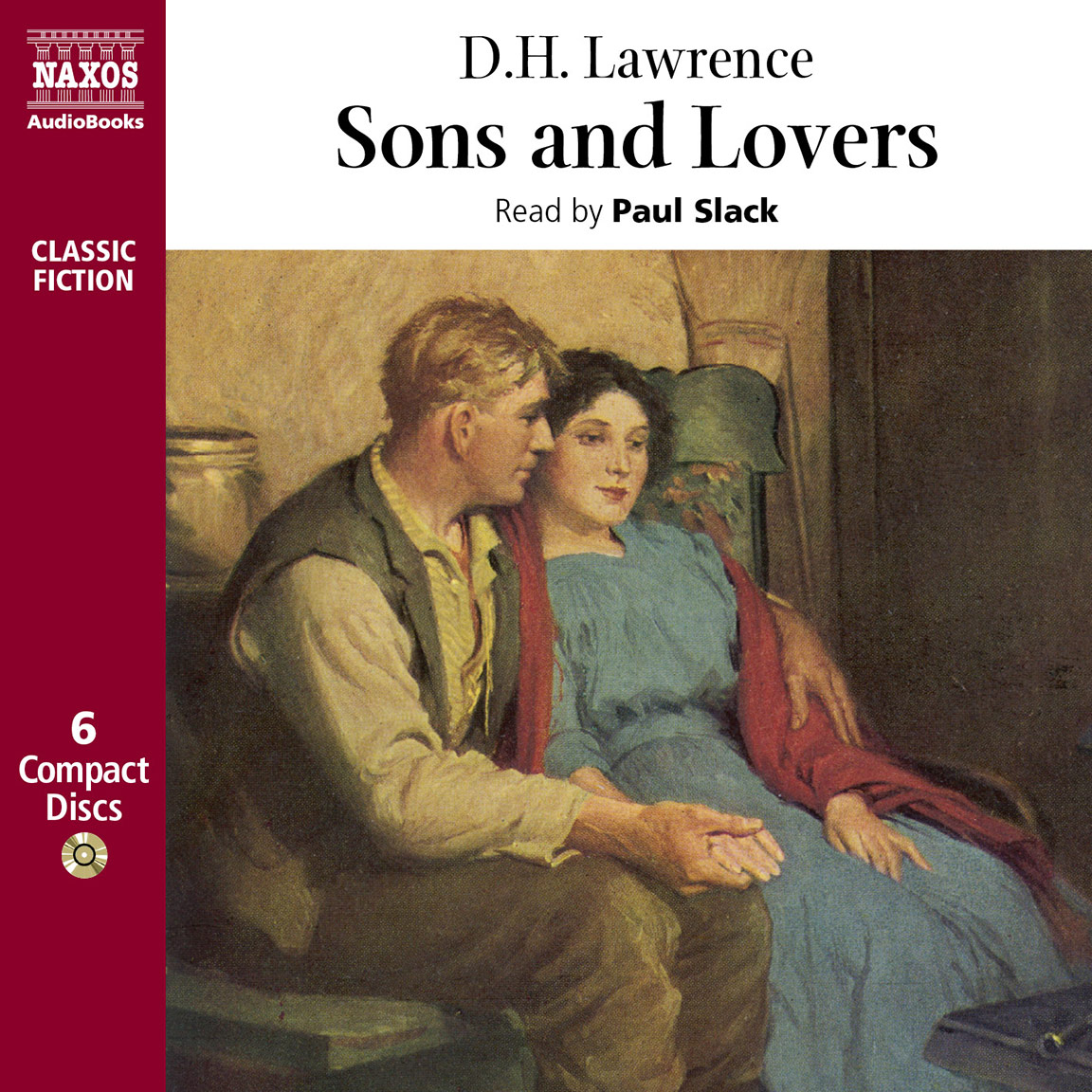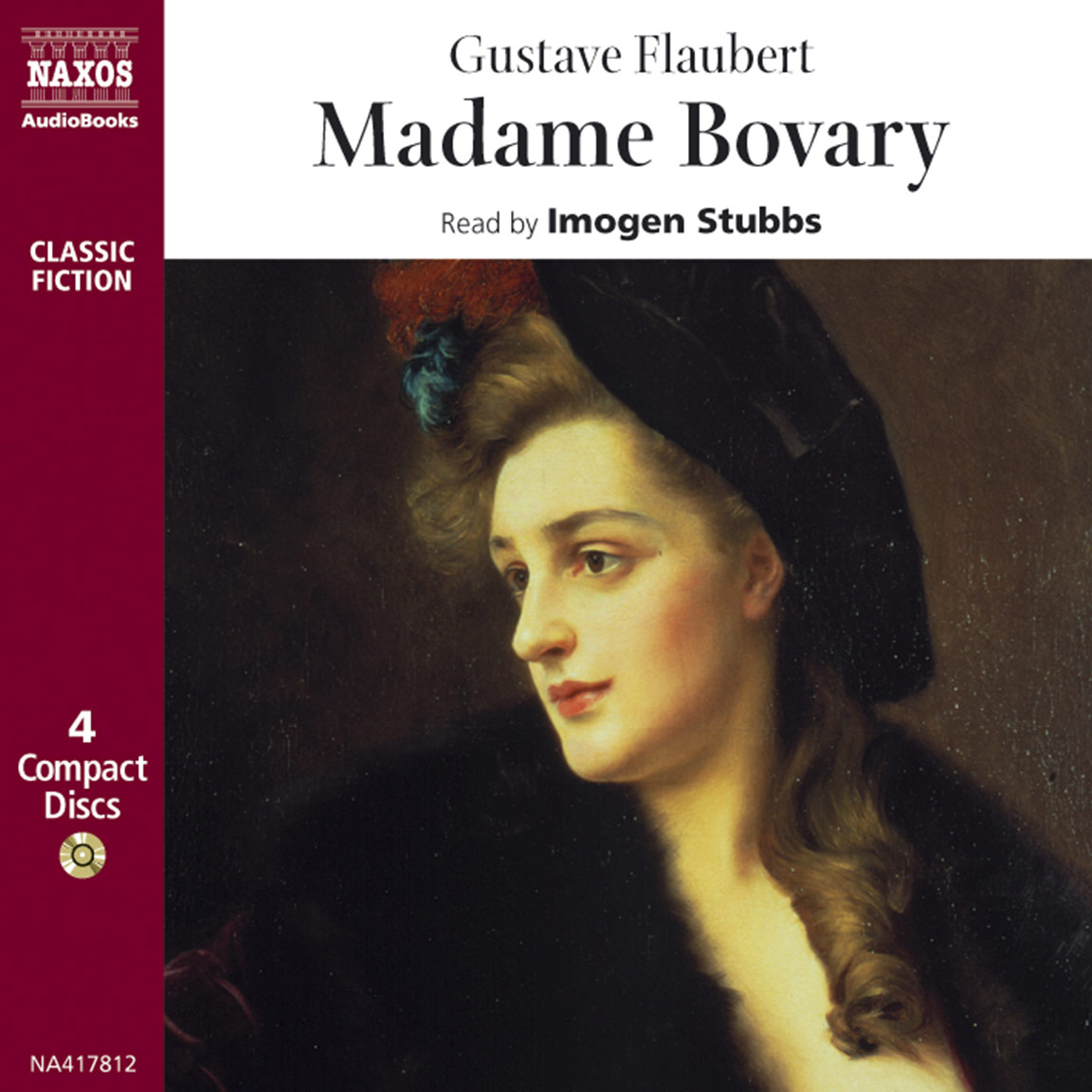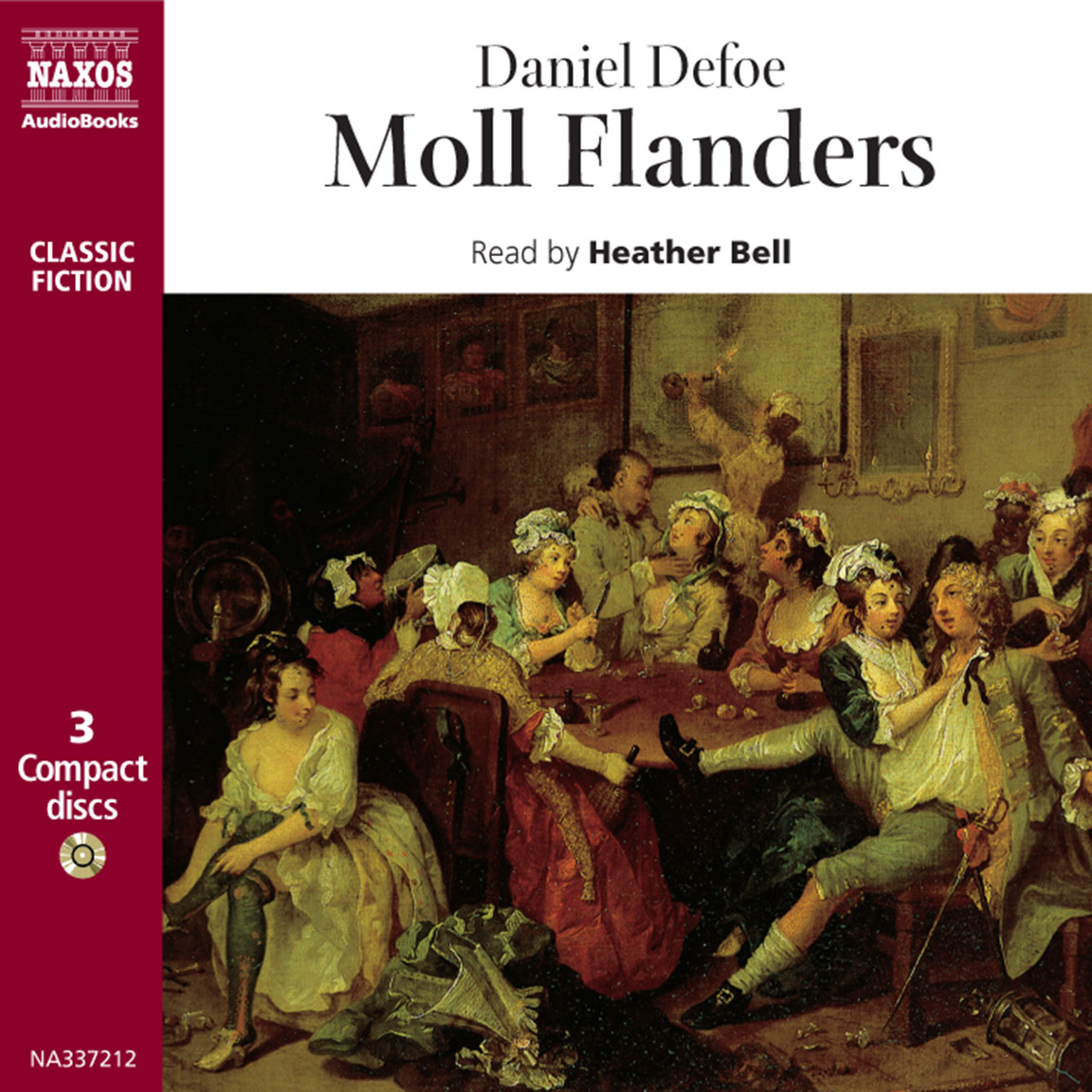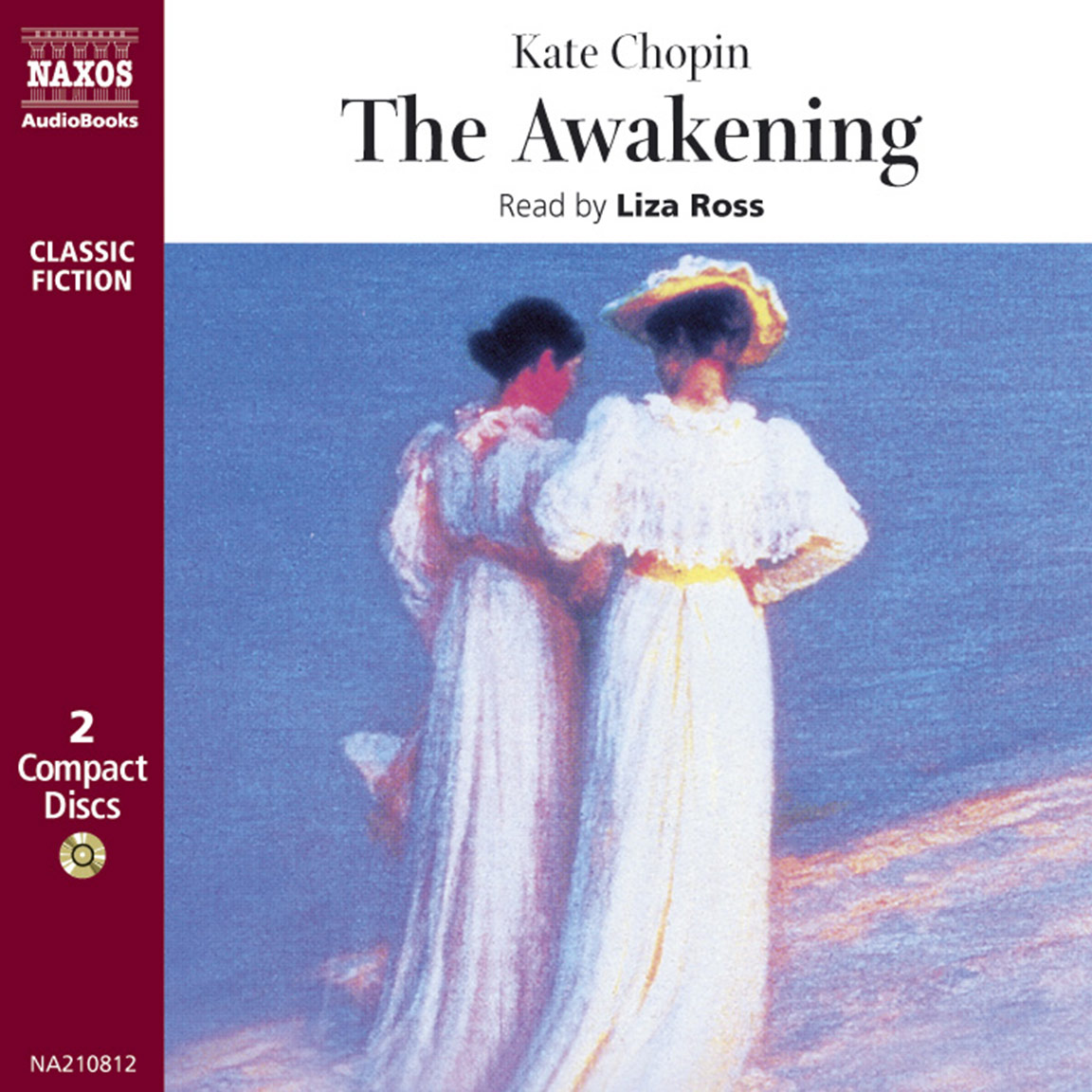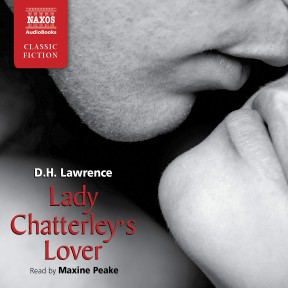
Audio Sample
D.H. Lawrence
Lady Chatterley’s Lover
Read by Maxine Peake
abridged
Lady Chatterley’s husband returns from the War paralysed from the waist down. Frustrated by his attitudes as much as his disability, she begins a love-affair with the gamekeeper, Mellors. She realises that to be fully alive she must live the life of the body as well as the mind, but in doing so she angers the conventions of her day. Banned for over 30 years for the explicit nature of its language and descriptions of sex, Lady Chatterley’s Lover also exposes the dehumanisation of the mechanical age, and underlines the profound power of tenderness.
-
Running Time: 5 h 10 m
More product details
Digital ISBN: 978-1-84379-509-4 Cat. no.: NA0041 Download size: 75 MB BISAC: FIC004000 Released: March 2011 -
Listen to this title at Audible.com↗Listen to this title at the Naxos Spoken Word Library↗
Due to copyright, this title is not currently available in your region.
You May Also Enjoy
Booklet Notes
Lady Chatterley’s Lover is all about sex. Lady Chatterley’s husband returns from the War paralysed from the waist down, and therefore unable to have intercourse with his wife. She turns initially to a friend of theirs, a dramatist, who is an eager lover but selfish and unsatisfactory. She then discovers herself involved with the gamekeeper, Oliver Mellors, and has something akin to an epiphany. Their sexual involvement is not about illicit passion or releasing tensions or satisfying cravings; it is a tender, physical demonstration of their humanity. That is why the graphic and largely explicit nature of the sex scenes is not pornography (despite nearly a century of sniggering schoolboys and po-faced academics); there is a deeper purpose at work.
Sex formed a part of that deeper purpose as well, of course. Lawrence wanted to discuss as frankly and openly as he could the nature of the relationship between men and women, but this was part of a broader concern. His overarching thesis was the idea that mankind was despoiling Nature (both the landscape and human nature itself), creating people with no drive other than the quest for money, and who were becoming dehumanised and mechanised in the process. For the ruling elite in the novel, this shows itself in the conversations between the guests at the Chatterley ‘seat’, Wragby. These guests are epitomes of various types of desiccated intellectualism. The working man is no less guilty though, sacrificing his honourable independence of thought and action to become a slave and a drone. The result is a loss of contact with both the sensual and sensuous parts of his nature, which find expression in, among other things, sex. Expressing these ideas through unambiguous descriptions of the sexual act was always going to raise the hackles of the conservative establishment in England; but then, almost anything Lawrence did had that effect.
David Herbert Richards Lawrence was born in Nottinghamshire to a family of miners, and lived a childhood that seems clichéd to us because he wrote with such unnerving honesty and openness about it later, especially in Sons and Lovers. His father was a drunkard whom Lawrence hated and feared, and the family lived in often appalling poverty and uncertainty, their lives dominated by the mines and the violent anger between the parents. But Lawrence’s mother was better educated than her husband, and inspired the sickly child (he suffered from poor health all his life) to begin his interest in the arts.
He quickly made a
decent amount from
it; but it was soon
being pirated,
especially once
it was banned
But for her, he might have stayed in the surgical appliance factory where he was a clerk. Prosthetics’ loss was literature’s gain as the gifted, intelligent, sensitive man (known by a school-friend as ‘a right cissy’) went to university and then on to become a teacher. Lawrence’s mother died in 1910, helped in part by Lawrence himself who gave her an overdose of painkillers. By then he had had poems published in Ford Madox Hueffer’s The English Review, but she did not live to see his first novel, The White Peacock (1911). By this time Lawrence’s health meant that he had to give up teaching, and he decided to become a professional writer.
It was not an easy choice since his income could rarely be guaranteed, and poverty is no friend to the tubercular. England was no friend to it either, and for the rest of his life after the War Lawrence wandered the world searching for climates that suited his lungs as much as his temperament, neither of which was predictable. In 1912 he met Frieda Weekly (née von Richthofen), who was married at the time and had three children. They eloped together and in 1914 began a marriage that was tempestuous and complex. Katherine Mansfield, one of the London literary set who championed Lawrence, wrote that she didn’t know which was worse: “when they are loving and playing with each other, or when they are roaring at each other and he is pulling out Frieda’s hair.”
They originally moved to Cornwall where their unorthodox manners and her German ancestry made them subjects of considerable suspicion during the War. Singing German folksongs didn’t help either, and suspicions increased as Lawrence’s reputation began to emerge. The Rainbow (1915) was banned in Britain for over a decade because of its treatment of sex and sexuality, and it took six years for the sequel (Women in Love) to find a publisher because of the furore. By that time Lawrence, who had nearly died during the influenza epidemic of 1919, was in Europe.
He stayed there for three years, but there was restlessness about his nature and the couple travelled around the world, finally settling – up to a point – in Taos, New Mexico. But once again Lawrence was forced to move by near-fatal illness, and he relocated to an area near Florence in Italy. Throughout this apparently unstable and insecure time, he was writing – short stories, novels, essays, travel writings and of course his brilliantly pared poetry – with a fierce, rather humourless, yet glittering realism. At a time when the general thrust was to imagine a more and more entirely intellectual and mechanical future, he pushed the other way, championing a more complex morality. His descriptions of the physical landscape are often beautiful and meticulous, his absorption into the inner world of his characters seems on occasion absolute, and his engagement with the moral issues of his day intense.
He was by nature something of a pedagogue, though, and his morality can seem proscriptive. He recognised that his enemies were not just those who sought to ban his work, but equally the new generation who would take his calls for moral liberation further than he desired. This former nonetheless deeply angered him, partly because he recognised in their efforts a spineless hypocrisy – the established authority banning something it did not understand – but also because they cost him money. He published Lady Chatterley’s Lover (1928) himself and quickly made a decent amount from it; but it was soon being pirated, especially once it was banned. This angered him almost as much as the ban itself, which was after all to be expected given the nature of the book.
The ban led to a trial that redefined social mores in England in 1960, when the jurors decided that the book could be published in its entirety. Initially this saw Lawrence, who had died thirty years previously, being given an almost demagogic status as a sexual liberator, even a kind of literary pornographer. It is an inaccuracy that has bedevilled the book ever since. Nothing in Lady Chatterley’s Lover is lascivious, prurient or titillating. It is a story about trying to be morally, physically and truthfully engaged with one’s human-ness. There was a backlash in the 70s when feminists in particular reacted against Lawrence’s phallo-centric attitudes, pointing out that although the book may be told in large part from a woman’s point of view, the sex is from a male perspective, and that Lawrence seems simply to dismiss other life-choices for women than marriage and children.
This criticism was at least a considered response to the underlying morality of the work, a book which forever changed publishing, writing and reading habits. Whatever Lady Chatterley’s Lover’s demerits, it challenged the prevailing intellectual orthodoxy, it questioned the benefit of mechanisation and the profit-motive, it emphasised the power of tenderness, and it sympathised profoundly with a woman in a male world. One thing is certain: it’s not just about sex.
Notes by Roy McMillan

